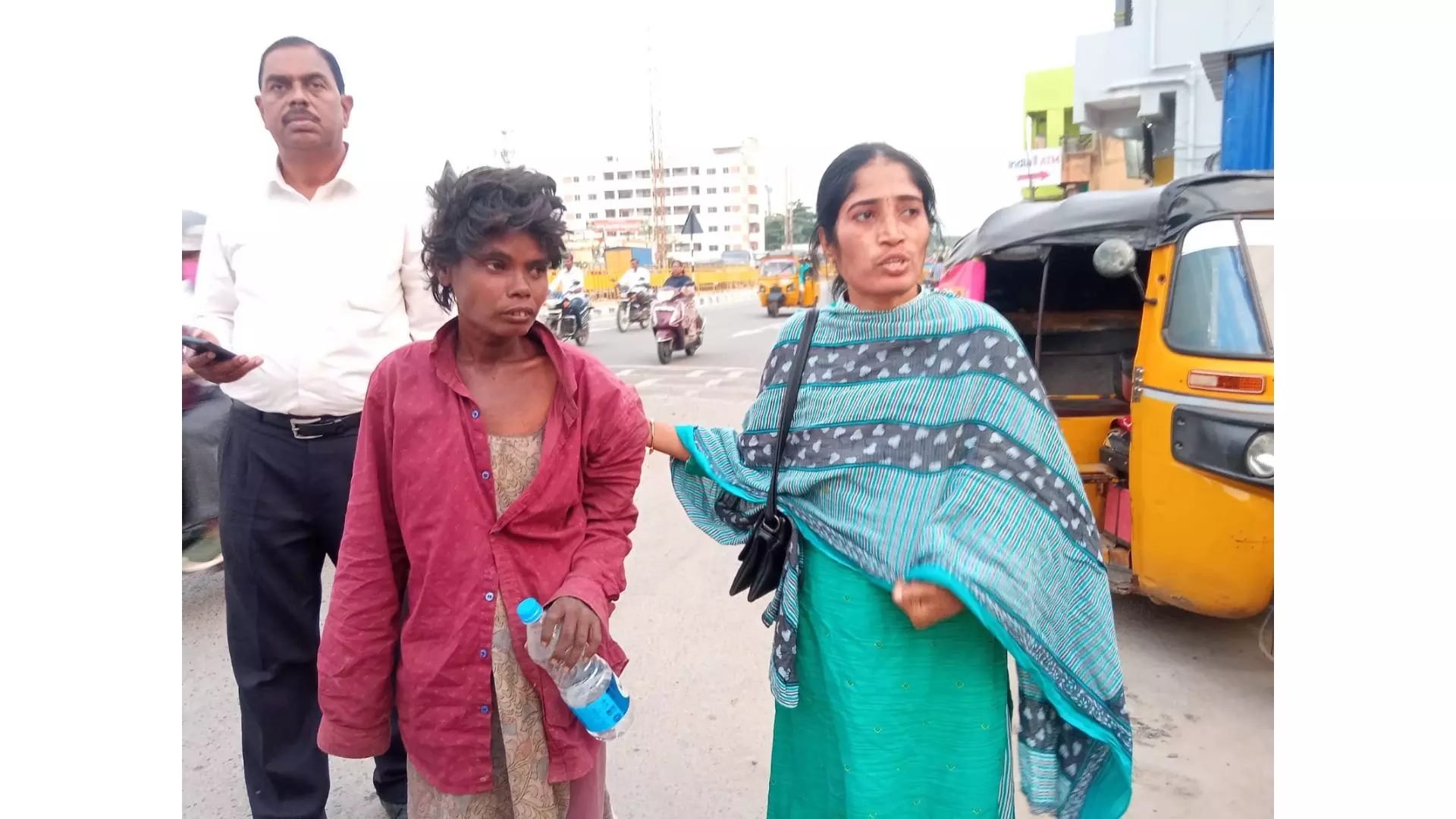Surge in Mentally Ill and Destitute Women on Andhra Streets

ANANTAPUR: Streets in Andhra Pradesh are seeing an increased presence of mentally ill and destitute women, with little care from governmental agencies and ignored by the society.
“Families too are responsible for their plight. When a person is diagnosed with a mental illness, families must try and engage them in simple, meaningful activities so that they would be mentally engaged. This would help prevent them from wandering aimlessly,” say activists engaged in their rescue and rehabilitation.
Across AP, thousands of women suffering from mental illness are rescued and housed in shelters. Many are disoriented, pregnant, or living with HIV.
In Rayadurg town in Anantapur district, a young woman Renuka is found wandering the streets without clothing. She suffers sexual abuse from teenagers and beggars.
Recently, social activist M Sasikala promised help for Renuka to find shelter or psychiatric care. But Renuka's parents refuse to allow her admission to a shelter, fearing that a likely recovery from illness would mean an end to her government pension of Rs 10,000.
In another case, a woman from a minority community was rescued from Kanekal with police assistance and placed in the Jeevanalayam shelter home in Tadapatri. Recently, two HIV-positive patients were also brought from Atmakur and Kambadur to safety.
Last week, six mentally ill individuals were rescued from Anantapur town and admitted to the RIMS Kadapa psychiatric ward, including two who were HIV-positive.
Activists say the government is duty-bound to address the plight of mentally ill destitute individuals and investigate complaints regarding their treatment.
M Suresh Babu, regional coordinator of Manobandhu, says over 2,500 mentally ill persons are living in the streets of Andhra Pradesh, after they were abandoned by their families and the state.
Its trustee, B Ramakrishnam Raju, notes that many of these individuals suffer from schizophrenia, bipolar disorder and other mental health issues. They often consume spoilt food and live in unhygienic conditions.
The presence of mentally ill individuals in AP’s streets has increased after the COVID pandemic. Many wander in the streets, are lost in their thoughts, and suffer from malnutrition and neglect. Homeless women face heightened risks of sexual abuse.
As the plight of mentally ill destitute worsens, activists stress the need for the government and society to act in unison to restore their dignity and rights.
Mental Health Act
The Mental Healthcare Act, 2017 aims to ensure the rights of individuals with mental illnesses and provide essential healthcare services. Key provisions include:
• Right to Dignity: Every person with a mental illness has the right to live with dignity and be protected from cruel or degrading treatment.
• Safe Environment: Individuals are entitled to a safe, hygienic living environment with access to adequate sanitation, leisure and privacy.
• Support for Community Living: The act emphasizes the need for proper clothing and preparation for reintegration into the community.

